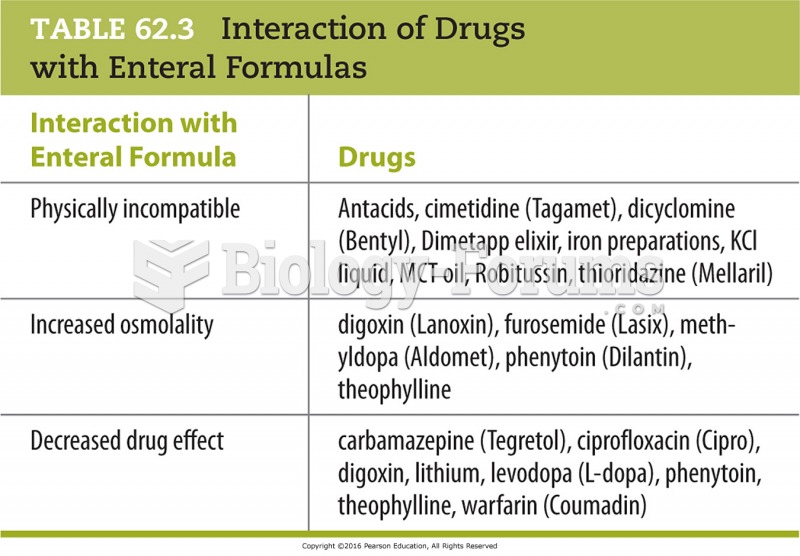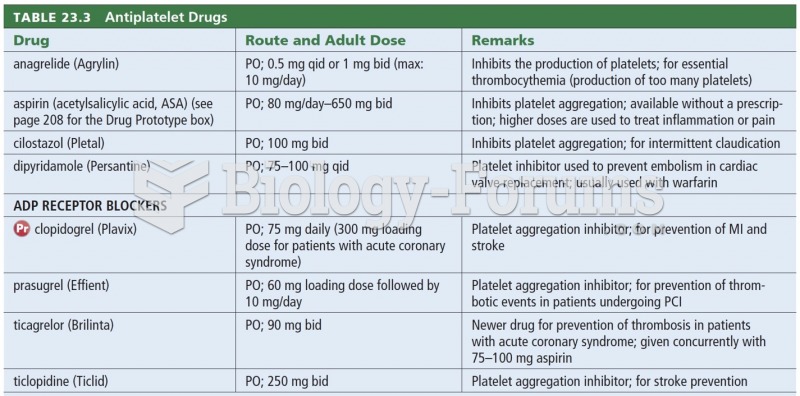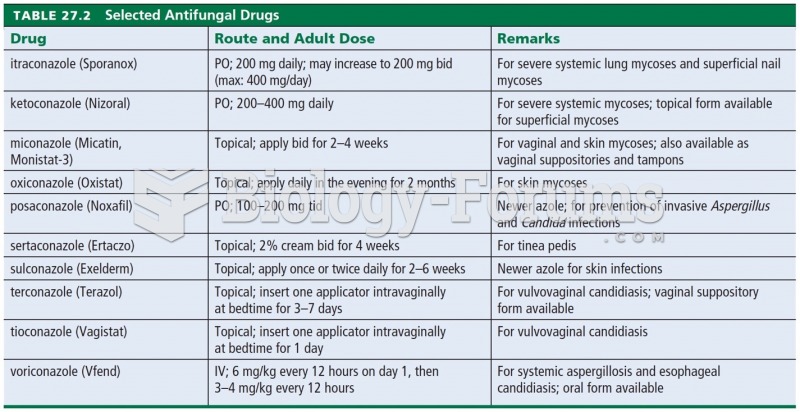|
|
|
Medication errors are more common among seriously ill patients than with those with minor conditions.
Green tea is able to stop the scent of garlic or onion from causing bad breath.
The average office desk has 400 times more bacteria on it than a toilet.
Less than one of every three adults with high LDL cholesterol has the condition under control. Only 48.1% with the condition are being treated for it.
Pink eye is a term that refers to conjunctivitis, which is inflammation of the thin, clear membrane (conjunctiva) over the white part of the eye (sclera). It may be triggered by a virus, bacteria, or foreign body in the eye. Antibiotic eye drops alleviate bacterial conjunctivitis, and antihistamine allergy pills or eye drops help control allergic conjunctivitis symptoms.







